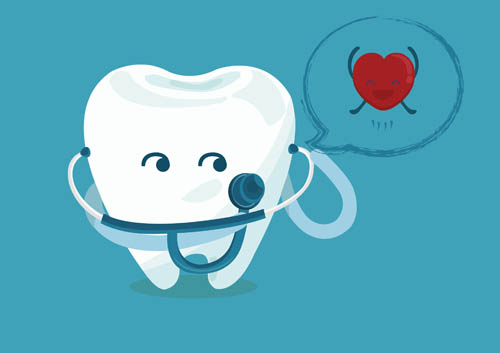Antibiotic Prophylaxis or Pre-Medication
September 21st, 2022

At Goedecke Family Dentistry, we know the human mouth contains a lot of bacteria. A bacterium can travel through your body with routine activities that are a normal part of daily living. You spread bacteria when you brush or floss your teeth, when you chew, and when you swallow.
For most people, bacteria don’t cause any problem. For some people, however, especially those who have chronic medical conditions, specific cardiac conditions, or whose immune systems are compromised, bacteria that spreads throughout the bloodstream can lead to much more serious bacterial infections.
The goal of pre-medication or antibiotic prophylaxis, Dr. Mark Goedecke will tell you, is to prevent bacterial endocarditis, a serious infection of the endothelial heart surfaces or the heart valves. The condition is also called infective endocarditis. A small population of people with certain health problems has a high risk for contracting this potentially deadly bacterium.
The American Heart Association states that people at greatest risk for contracting bacterial or infective endocarditis are:
- Patients who underwent cardiac valve surgery in the past
- Those who have suffered past incidents of infective endocarditis
- Patients who have mitral valve prolapse, resulting in or causing valve leakage
- People who have had rheumatic fever or any degenerative cardiac condition that produces abnormalities in cardiac valves
- Patients who suffer from certain congenital heart diseases
For these patients, any dental procedure may cause bleeding, and prophylactic antibiotic administration is recommended as a preventive measure.
Other patients who require prophylactic antibiotics
The American Association of Endodontists extends recommendations to patients who have undergone joint replacement surgery within the past two years, suffer from type 1 diabetes, or have immune deficiencies from diseases such as lupus, rheumatoid arthritis, or HIV; cancer patients whose immune systems are suppressed because of radiation or chemotherapy; people who have had organ transplants; and hemophiliacs.
The American Academy of Pediatric Dentistry also includes people who suffer from sickle cell anemia, as well as patients who suffer from conditions that require chronic steroid therapy.
Typical endodontic procedures for which antibiotic prophylaxis is recommended include root canal therapy (when it involves going deeper than the root apex), surgical tooth extractions, and any other dental, endodontic, or periodontal procedure during which the doctor anticipates bleeding.
Although different medical societies and organizations offer these guidelines as a way of identifying patients for whom prophylactic pre-medication is essential prior to dental procedures, dentists will take each patient's medical history and personal risk factors into consideration. Some doctors may choose to administer antibiotics following a procedure, especially for patients who have previously suffered from oral infections either as a result of dental procedures or that necessitated oral surgery.
For more information about antibiotic prophylaxis, or to schedule an appointment with Dr. Mark Goedecke, please give us a call at our convenient Mt. Pleasant office!






